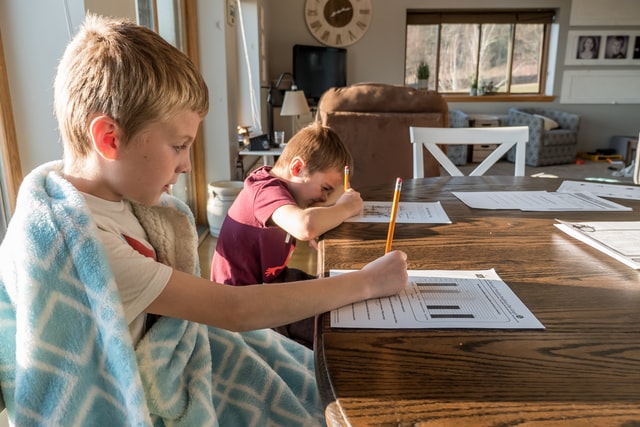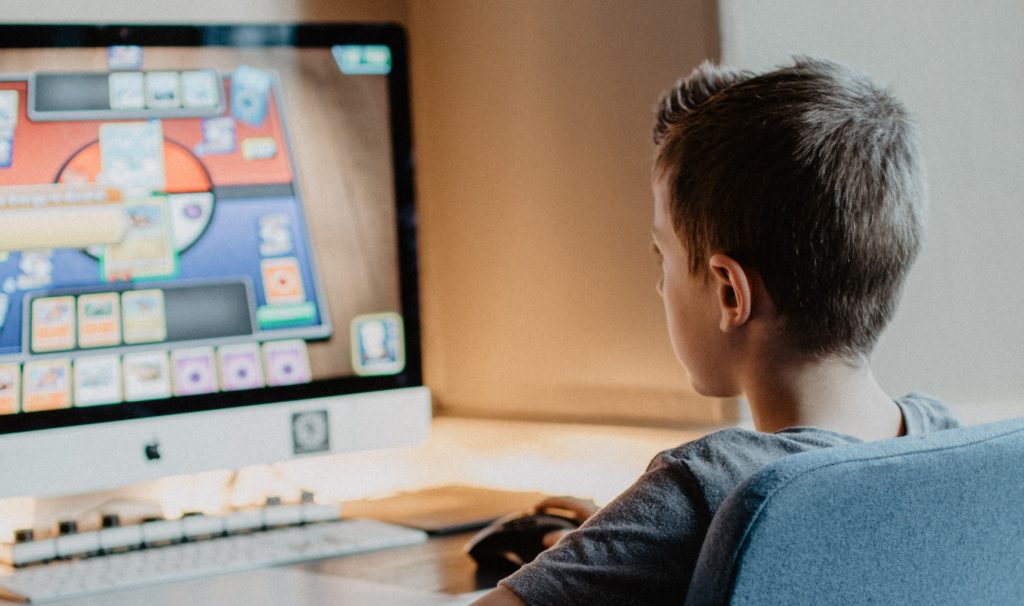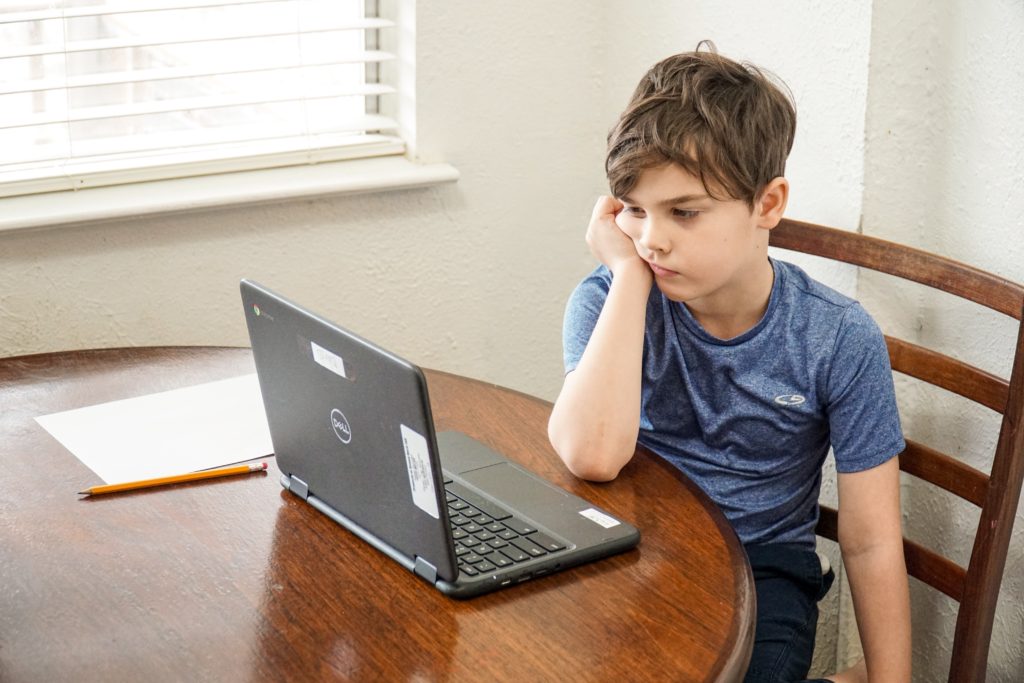Table of Contents
What is Homeschooling?
In its simplest form, homeschooling refers to parents educating their children at home rather than sending them to a formal school. However, in reality, the term “homeschooling” covers a broad range of educational strategies centered on having more of the education of a child happen in the home or local community rather than a traditional school.
Traditionally, modern homeschooling in the United States started largely as a religious movement with protestant Christians rejecting the increasing secularization of schools, but now there are a large variety of people who are choosing to move to a homeschooling model for reasons ranging from dissatisfaction with the academics, safety, or quality of more traditional schools.
Data on Homeschooling
Homeschooling has traditionally been seen as a religious movement largely made up of Christians who reject the secularization of education. While generally true in the past, fewer and fewer homeschooling parents cite religious reasons for why they choose to homeschool their children, with school safety being a new major reason cited.
Homeschooling has recently seen a massive uptick in numbers, but has been a phenomenon since well before formalized education began. In the Spring of 2019, only 2.5 million or about 3% of US school aged children reported being partially or fully homeschooled. This number skyrocketed during the pandemic with figures from the Spring of 2021 showing almost a doubling of that number with over 4 million US children being partially or fully homeschooled.
The pandemic is not the only reason many secular parents are choosing to homeschool their children. Depending on how you measure, according to the CDC, gun violence has become either the highest or the second highest cause of death for children in the United States. (CDC WISQARS data) The United States is by far the worst country on the planet for school shootings. Since 2009, the United States has endured 288 school shootings, while the number two slot, held by Mexico, has had only 8. (Grabow and Rose)
Because of these dangers, homeschooling is becoming less of a religious movement and more of one concerned by the lack of safety standards in the United States. It is important, especially in light of these recent changes in demographics, to not dismiss homeschooling as exclusively religious, as there are other reasons parents cite for choosing to homeschool their children.
Benefits of Homeschooling

- Great student-teacher ratio
One of the most significant benefits to homeschooling is that students get a much smaller student-teacher ratio. Many schools have between 20-30 students per teacher per class. This means that if a teacher has a full schedule of 5 classes, that they will have between 100-150 students to consider and work with throughout the school day.
In homeschooling, however, parents are the teachers of their children, so often they will have to work with somewhere between 1-5 students. Not only are class sizes smaller, but the total student load is lower, allowing the teacher to spend more time with each student throughout the day ensuring they understand concepts before moving on.
Teachers in traditional schools always do their best to keep students from falling behind, but at some point, the teacher has to move on to not hold back the other 19-29 students in the class. In homeschooling, the teacher can spend significantly more time with struggling students in addition to having the time to go deeper with their students on topics that interest them instead of focusing on simply ensuring all students have a general understanding of required basic topics.
- Efficient use of time
Another benefit of smaller class sizes is that transition times and quieting practices take significantly less time. Moving a single student from one task to another is significantly faster than transitioning a class of 30. Because of this, there is less time lost between activities.
Switching activities and giving out instructions often take a significant amount of class time. Oftentimes, the giving of the actual instructions takes less time than it does for the teacher to quiet the class down, ensure everyone is listening, and answer any clarifying questions. When a teacher only has to ensure the attention of a single or pair of students and answer only their clarifying questions, it leaves much more time for students to get to work or have meaningful dialogue on topics.
- The teacher has a better knowledge about their student
One of the biggest tasks for teachers at the beginning of the year is to get to know their students and how they work best. For parents homeschooling their children, this task is significantly easier as they already have a solid foundational knowledge of their child and what helps them get things done.
First year homeschool parents will still have to spend time getting to know their child in this new context and understand them as a teacher with specific learning goals, but already having a solid rapport with a student will speed up this process significantly.
- Easy to differentiate
As the year goes on and teachers develop a relationship with students, they will inevitably learn that almost all students will require some amount of differentiation at some points in their education. When homeschooling, not only is the number of students that need differentiation significantly lower, but it will be easier to identify when students are struggling due to increased student teacher time.
Especially with quiet students, sometimes the only indication that something is going wrong is a failed test, quiz, or other assignment. When homeschooling and having a small group or individual instruction, it is harder for students to slip through the cracks and lose instruction because they don’t know how or don’t want to advocate for themselves.
- Ability to focus on students’ passions
Another major benefit in homeschooling is that the teacher can focus the curriculum entirely on their few students rather than having to serve a wide population of students with varying interests, passions, and postgraduate plans.
Because of this, homeschool teachers can not only teach the classes that most closely match their students interests that fulfill national requirements, but they can also tailor the content of each course to spend the maximum amount of time on the topics their student is most passionate about. Conversely, they also have the freedom to spend more time working on the areas their student is struggling the most with, shoring up that weakness rather than having to move on to work on things other students need more.
Disadvantages of Homeschooling

- Lack of social learning
One of the most important parts of learning in school is being able to discuss and utilize what students have learned in discussions and presentations with other students. In a homeschool situation, this feature is extremely limited. While parents can attempt to have discussions with students or have their children discuss things together, this will quickly get stale and seem forced having the same partners year after year.
Adding to the difficulty of social learning in homeschooling, children, unless they are twins, are rarely going to be studying the exact same materials. This means that in order to make time for students to share their learning with others, they either have to have siblings listen in to things they haven’t been learning or join a homeschool co-op where homeschool students can work together on some projects.
Joining a co-op can be beneficial in many ways, but the more time spent in a co-op situation, the fewer of the above benefits there are for homeschooling. Spending too much of the school day in a co-op group basically turns homeschooling into private schooling with no formal organization, but it can also work to overcome several of the disadvantages of homeschooling.
- Lack of socialization
In addition to losing the social learning that school provides, the lack of people to interact with in a homeschool situation also affects students’ social skills. While students that are homeschooled will still have to interact with their parents and siblings, this doesn’t provide them with the wide array of social situations that a public or private school provides. Larger traditional schools expose students to a wider variety of social situations and help them learn about people from various backgrounds, reducing the chances of relying on stereotypes.
Parents who homeschool often are well aware of this drawback to homeschooling and mindfully include social afterschool activities for their children. Examples include having them join local sports leagues, boy or girl scout clubs, or social or art groups based on their children’s interests. This requires a lot of organization on the parents’ part, but can diminish or even remove the drawbacks of homeschooling on their children’s social development.
- Lack of different teaching styles
Not only does a larger school expose students to a wider variety of peers, but also a wider variety of teachers. Each teacher has a slightly different style and when students only have one teacher for all of their classes, they won’t be prepared for as many types of teachers as a student who has had multiple teachers for each class that change each year.
Each student will often gravitate to different teachers because their style engages or helps them. While parents have a special relationship with their students, children can often benefit from having a separation of authority figures for different issues, especially as students get older.
While consistency and established rapport are important for students, eventually all students will have to go on to either further education or the workforce where they will have to learn to work with a wide variety of teachers, bosses, and authority figures. Students in a homeschool environment may struggle with teachers or bosses who work in a significantly different style than the one they have been exposed to for their entire education.
- Lack of separation of home life and school life
As mentioned above, sometimes students benefit from having multiple authority figures to go to for different issues. Just as some people benefit from speaking to a therapist for certain issues rather than talking with a friend or family member, some students will benefit from having a teacher who is not their parent.
Not having any separation from parents can cause children to feel trapped and overwhelmed. While some students feel overwhelmed and negative at school, at least they can go home and have a break from the negative environment at school. Students who are having problems at home have to spend 24/7 with their teacher and classmates.
This also makes it hard for students who are experiencing abuse to report or even recognize that they are being abused. Many times, youth who are being abused find out that what has been going on is inappropriate by having discussions with other adults in their life who notice the red flags and investigate.
If a child is homeschooled, they may only know people who are directly connected to their abuser since a large portion of abuse happens from family members. A bit of distance, physically and socially, can allow students who are feeling uncomfortable to open up about these serious issues.
- Lack of independence
Another drawback to a parent also being the teacher is that this can lead to a fuller dependence on that one adult in their life to take care of all of their issues. When students do not have to navigate traditional situations and can simply rely on a single adult or pair of adults to take care of all of their issues, they can often lack problem solving skills.
Being in a traditional school requires students to not only navigate an environment that is less individually designed for them, but also deal with not being the center of attention at all times. While getting all of the attention and having everything individualized can be very beneficial for students in many ways, as mentioned in the benefits section, it can also lead them to being less effective in environments where not everything is tailor made for their specific needs.
It is important for homeschool parents to not overly coddle their children and attempt to protect them from all of the evils of the world. Part of growing up is learning to handle what the world can throw at a person and being able to withstand the temptations and make the right choices even when they are hard.
Students who don’t learn to recognize dangerous situations or test boundaries in a safe environment can get into serious trouble in college or at work once they leave the safety of their overprotective setting. Parents and teachers should be wary of trying to protect children too much but instead provide clear education on dangerous situations and allow their children to be in situations where they can develop their critical thinking and morality.
Is Homeschooling Backed by Research?
Because of a lack of a central organizing or overseeing organization, solid data is very sparse on the merits or condemnation of homeschooling when compared with traditional schooling. While there have been a few studies conducted aimed at evaluating homeschoolers performance when compared with traditionally educated children, the sample sizes are often very small and measure only a small sector of the homeschool population.
A recent study found that homeschoolers GPA outstripped their traditionally educated peers by a statistically significant amount. (Ray) This study was plagued by a very small sample size of only 22, however. This study was not the only one to show homeschooled students performing above their traditionally educated peers though.
Another study did show some seemingly significant higher GPAs and ACT scores for homeschooled students when compared to their traditionally educated peers. (Cogan) The study was conducted at a school in the US Midwest but the two data sets used from the school had homeschooler sample sizes of 76 and 70 pale in comparison to the traditionally schooled sample sizes of 7,700 and 6,354. These tiny sample sizes make the positive findings less trustworthy and would not be considered sufficient evidence of superiority in scientific circles.
Additionally, the studies were conducted at a university which only measures the abilities of students who make it through the university acceptance process. While both traditionally educated children and homeschooled children had this same factor, this approach really only measures a small subset of students who attend university rather than comparing the two educational approaches in how they work for all students. While the cream of the crop of homeschoolers may succeed at par or better than their peers, this data does not fully measure the two educational systems in their entirety.
Other studies have shown no differences between the two types of schooling at all. A study on 55 homeschoolers and 53 traditional students completed in 2004 to compare first year college academic performance found no statistically significant differences between the two groups in any of the measures they looked at including GPA, ACT scores, and credit hours earned. (Jones and Gloeckner)
Some attempts have been made to gather larger sample sizes of homeschool students through the Cardus Education Study which attempted to gather survey data on homeschoolers to get clearer results. They were able to collect data from 124 homeschooled students, but ran into several issues when trying to evaluate homeschooling as a single approach.
According to the researchers, “The homeschooling sector is marked by a high degree of variation, making it difficult to discuss this as a “sector” in the same way. Homeschooling graduates seem to have a wide range of views and experiences, making it more difficult to draw a coherent picture of the typical pathway.” (Casagrande) Because homeschooling doesn’t have a single approach to educating children like a traditional school does, it is difficult to not run into a myriad of confounding factors when trying to lump them under a single heading.

In homeschooling, the approaches to teaching vary from a single parent teaching non traditional classes using whatever materials they have on hand with little organizational structure to approaches where parents buy full curriculums with video lessons, formal tests, and even homework. In current data these approaches would both be lumped under the “homeschooling” umbrella despite being completely different experiences for the student.
While the Cardus Education Study was not focused on GPA or test scores, they did make several interesting findings about the homeschoolers they surveyed. They found that homeschoolers were the group that ended up completing the lowest number of years of education compared to private or public schoolers. Homeschoolers completed an average of 14.1 years of education while public schoolers completed an average of 16, nonreligious private schoolers completed 16.4, Catholic schoolers completed 16.1, and Protestant schoolers completed 15.8. While the variation between the other schooling types was minimal, the notable dropoff in years of education in homeschoolers is significant.
As mentioned by the researchers, it is hard to decide a single reason for this notable drop, but one other finding by the researchers was that homeschoolers were much more likely to distrust the government, scientists, and other authority figures when compared with those educated in a traditional setting. This may be why they value formal education less than other groups.
Another possibility for this discrepancy is that many religiously motivated people feel that education for women is secondary to motherly duties. Rarely will anyone in the United States say that women shouldn’t pursue college or careers, but many religious people feel that a higher education can be skipped by women in the family as they should be focusing on being a homemaker and mother, not trying to have a career alongside her husband.
Unfortunately, no data was collected by Cardus on the variations in this data between genders. Future studies should separate out survey respondents by gender to see if this could help to uncover reasons why homeschoolers tend to complete fewer years of education.
Some may legitimately worry that the data, especially with such small sample sizes, may include significant bias, but the data showing slightly elevated college scores for homeschoolers is fairly steady across multiple data sets. As for the Cardus Education Study, despite finding concerns about the homeschooling approach, they are an explicitly Christian organization that should, if anything, be biased towards homeschooling.
While there are some interesting trends being discussed in the research on homeschooling, Cardus hits the nail on the head by saying that “homeschooling” can not be truly defined as an approach to teaching, but simply a setting.
A bad teacher or two in a traditional school can dramatically impact the scores and success of students at a traditional school. When there is only one teacher in the homeschooling setting, a quality difference in the one teacher can result in a completely different outcome for another homeschooled family with a competent teacher despite both being considered “homeschooled”.
Similarly, a school with a large budget almost always performs better than schools with a small budget. The same would certainly hold true for homeschool families’ socio-economic status as well. A poor family without the resources to buy textbooks, assignments, and other learning materials will struggle more than a well to do family that can afford the best curriculums for homeschooling their children.
Conclusion
In the end, it makes a lot of sense that homeschoolers who succeed well enough to get into college are more successful than their peers due to the low teacher student ratio and other clear benefits provided by homeschooling. Students who have had one on one support their entire education from a high quality teacher will inevitably have an advantage over students who have had to sit in classrooms of 20-30 peers all competing for the teachers attention.
However, not all parents are suited to homeschool their children. This may be because they do not have the skills required of a teacher, or perhaps because they do not have the money to buy the expensive supplies needed to give their students an organized education.
In order to be successful, homeschooling needs to be well organized and planned out. Classes can not be thrown together ad hoc by parents without thought to educational benchmarks. Because of this, parents that have the time, money, and energy to become teachers, principals, administrators, curriculum experts, as well as all of their other parental duties may be able to provide a better education at home than at a traditional institution.
A lot of parents can not do this, however. Because of this, no firm recommendations can be made about which approach is better. Much more research needs to be done on homeschoolers, getting larger sample sizes and looking more in detail at the various aspects of homeschooling rather than just lumping all homeschoolers under a single heading.
The old and extreme view of homeschoolers being religious extremists who only teach their daughters how to cook and clean is unfair and untrue, especially today. While homeschooling may have once been a largely religious movement, due to safety concerns from the pandemic and gun violence in the United States, the number and variety of people choosing homeschooling is drastically changing. Because of this, more care will be needed in research to differentiate the different types of homeschoolers.
Want more like this? Make Lab to Class a part of your weekly professional development schedule by subscribing to updates below.
References
Casagrande, Marisa. “Cardus Education Survey 2018: Rethinking Public Education.” Cardus, 7 Oct. 2019, https://www.cardus.ca/research/education/reports/rethinking-public-education/.
Grabow, Chip, and Lisa Rose. “The US Has Had 57 Times as Many School Shootings as the Other Major Industrialized Nations Combined.” CNN, Cable News Network, 21 May 2018, https://www.cnn.com/2018/05/21/us/school-shooting-us-versus-world-trnd/index.html.
Jones, Paul, and Gene Gloeckner. “First Year College Performance: A Study of Home School Graduates and Traditional School Graduates.” Journal of College Admission, no. 183, 2004, pp. 17–20.
Ray, Brian D. “The Difference in the Academic Achievements of Homeschooled and Non-Homeschooled Students.” National Home Education Research Institute, vol. 32, no. 1, 10 Jan. 2016.



